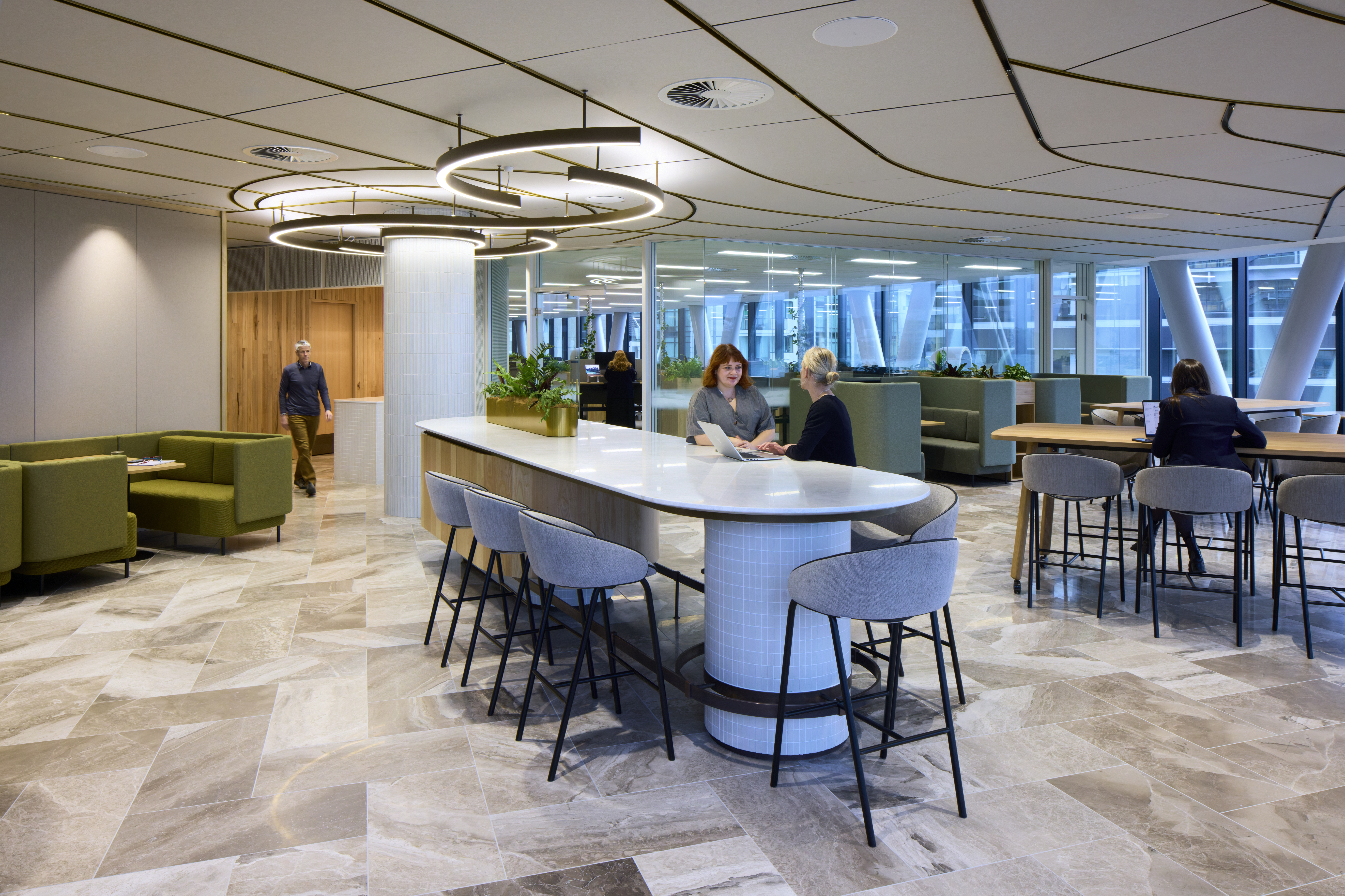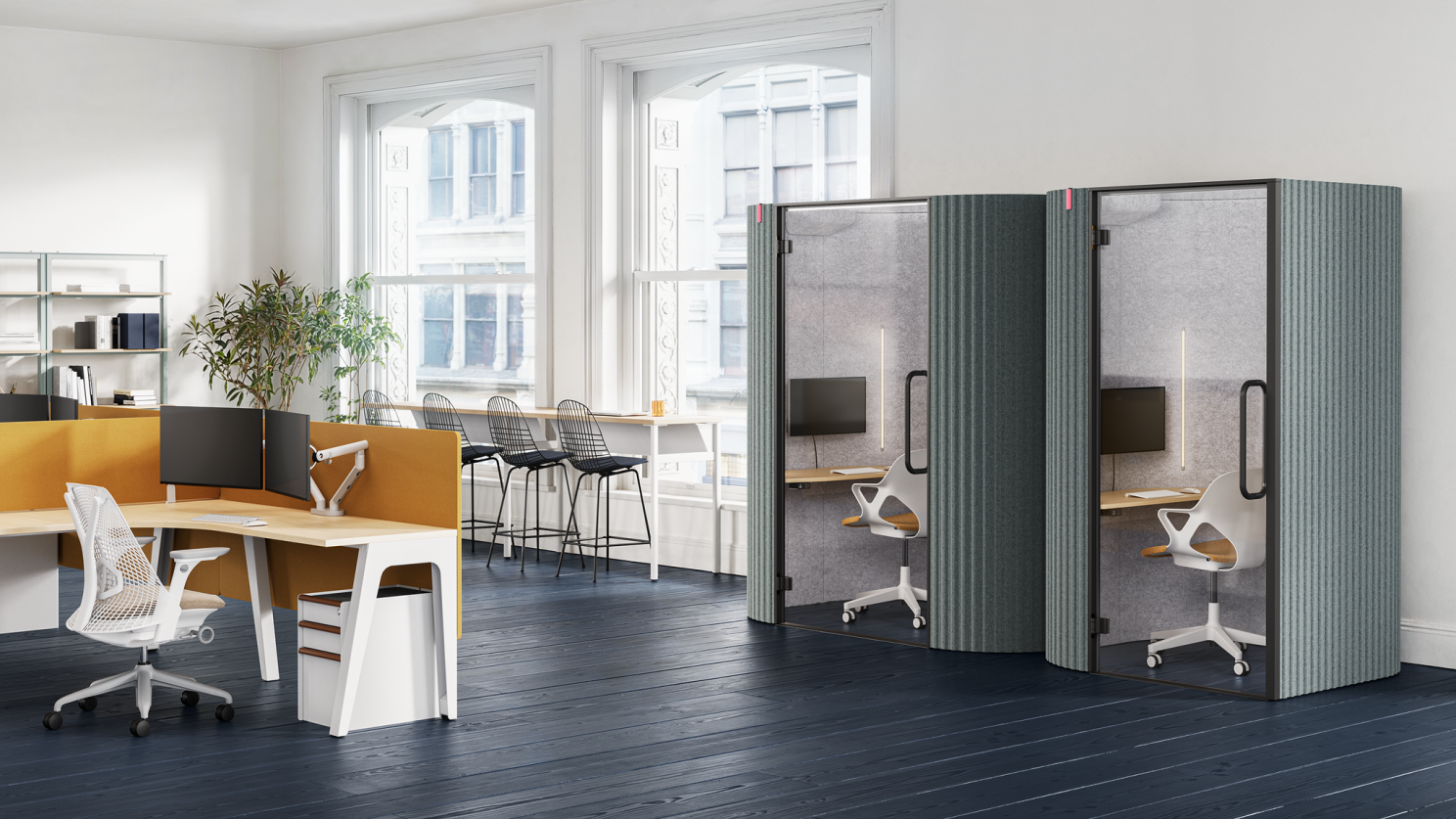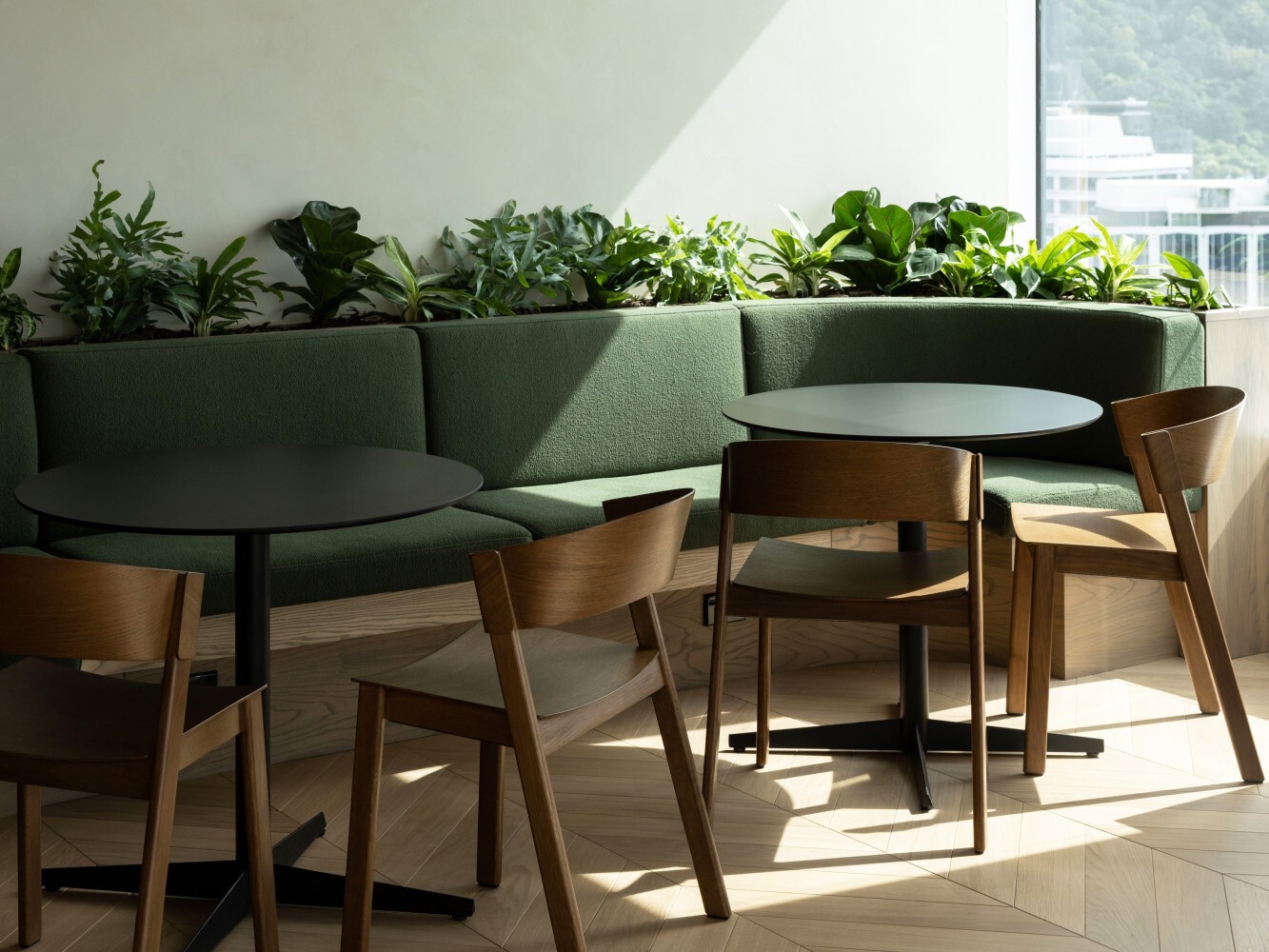

Last month, we explored Neuroaesthetics and Its Impact on Commercial Workspaces, diving into how design influences cognition, emotion, and productivity. Building on this theme, this month we shift our focus to the future of workplace design. How will the modern ‘office’ evolve to meet the demands of 2025 and beyond?
At Unison Workspaces, we are at the forefront of these evolving trends, offering solutions that integrate sustainability, flexibility, and ergonomic design. From high-performance seating to adaptable workstations and collaborative furniture, we provide workplaces with the tools they need to create inspiring, future-ready environments.

As the Director of Projects at Unison Workspaces, I have witnessed firsthand the transformative shifts in workplace design, especially in the wake of recent global events. The traditional office model has evolved, and our approach at Unison is to lead our clients into this new era with research-backed, flexible, and sustainable design solutions.
Organisations are designing spaces that encourage creativity and teamwork. Multipurpose collaboration zones, such as lounge-style meeting areas, breakout spaces, and open discussion zones, cater to diverse work needs through innovative furniture solutions that enhance these spaces. Offices are also incorporating community-centric designs, including café-style hubs, wellness rooms, and casual seating areas to foster connection and engagement.
The rise of agile work environments means spaces must be equipped with mobile whiteboards, movable partitions, and integrated technology to support dynamic collaboration. This drives the need for modular, aesthetically refined solutions that enable flexible work arrangements. Recently collaboration zones have become more residential in their look and spaces now are being created with a hotel feel. Providing a dynamic collection of lounge seating contributes to a welcoming and productive environment and encapsulates a coherent design.
Hybrid work models require adaptable office designs. Modular furniture, such as reconfigurable desks, seating, and meeting spaces, allows businesses to adjust layouts as needed. Offices are moving away from assigned desks, favouring shared, bookable workstations supported by a flexible and cohesive furniture ecosystem. MillerKnoll’s "Design with Impact" philosophy integrates sustainability, adaptability, and human-centered design into every workspace solution. Additionally, smart workspaces with seamless video conferencing, wireless charging, and touchless controls ensure a frictionless experience for in-office and remote workers alike.
Design with impact allows us to plan spaces that allow for a variety of activities, ensuring that collaboration remains at the
forefront. These environments enable employees to seamlessly transition between group discussions and focused individual work.
The modern workplace demands seamless technology integration to support both in-person and virtual collaborations. We've been designing spaces equipped with advanced video conferencing tools, interactive surfaces, and smart office systems to ensure teams, whether on-site or remote, can collaborate effectively and efficiently.
qwq.png)

With the return to office environments, maintaining concentration amidst increased interactions is a challenge. To address this, implementing design solutions that incorporate quiet zones and 'library' areas, moving beyond traditional phone booths. Comprehensive solutions such as work pods from Herman Miller and Soundbox Acoustic, along with locally made high- and low-back booth solutions and privacy seating, create dedicated spaces for focused work. Our recent project at MinterEllisonRuddWatts showcases the effectiveness of these local booth designs in enhancing workplace flexibility and concentration.
Sustainability is a driving force in modern workplace design, with companies seeking to create workspaces that stand the test of time. Industry leaders, including Muuto, Knoll, and Herman Miller, are pioneering environmentally responsible furniture and design solutions. This includes utilising recycled plastics, FSC-certified wood, and low-VOC finishes to minimise environmental impact.
Investing in modular, durable furniture that can be reconfigured to meet evolving needs reduces the frequency of replacements, ultimately contributing to long-term sustainability. Additionally, responsible manufacturing practices, such as carbon-neutral factories and closed-loop recycling programs, are shaping the future of office furniture production.
At Unison, we collaborate with world-renowned suppliers who share a longstanding commitment to sustainability. Our goal is to provide clients with aesthetically pleasing and functional furniture solutions that have minimal environmental impact and are designed for longevity.

Employee well-being is central to modern workplace design. Companies are implementing biophilic elements, such as natural light, indoor plants, and organic materials, to improve air quality and boost productivity. Ergonomic solutions, including height-adjustable desks and posture-supportive seating, contribute to physical health and comfort. Additionally, acoustic design elements, such as soundproofing solutions and designated quiet areas, help employees maintain focus while balancing open-concept workspaces.
Our designs aim to create spaces that not only support work activities but also enhance the overall well-being of employees.
